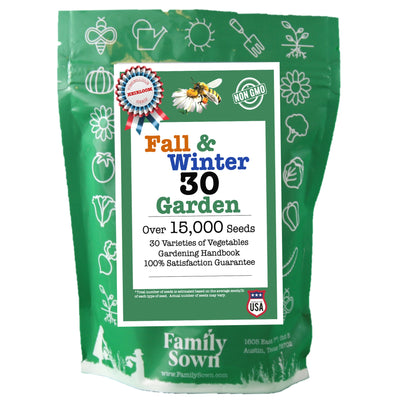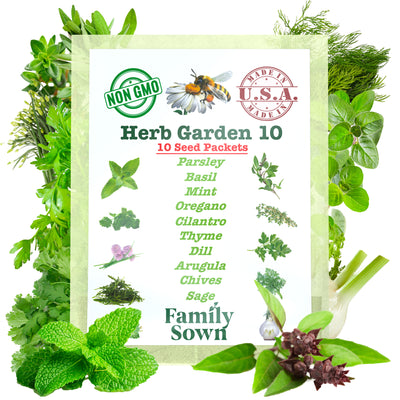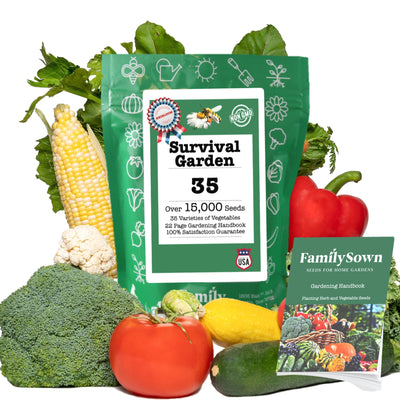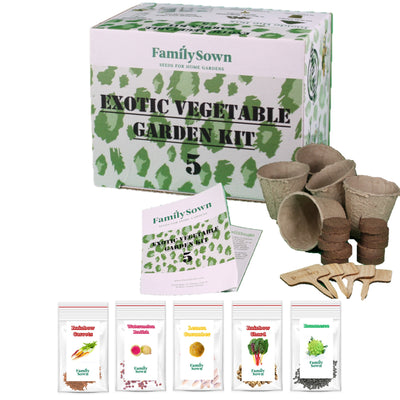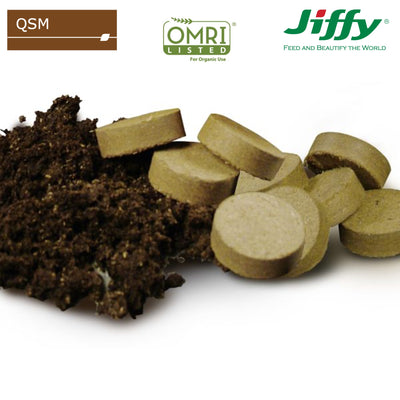Starting Seeds
Seasonal changes present challenges for growing food, especially if you plan to grow food year-round. To help find the most optimal times to grow foods, we use the USDA hardiness zone method, which is all about the coldest time of year where you live. Some plants will germinate outdoors in cold weather. Others require a warm season to germinate. Starting seeds indoors or outdoors requires that you understand the danger of frost and plan seed starting according to the average last frost date. Learn more about USDA Hardiness Zones by clicking here. USDA Hardiness Zones
Direct Sow Seeds
Most root vegetables should be directly sown because their taproot is fragile. Carrots would be an excellent example of a crop that should always be direct sown. It is pretty much impossible to transplant carrots as the tap root outgrows the pot long before the stem is strong enough to handle transplanting.
Any plant with a fragile root system should not be disturbed once they begin to grow. If you need to start delicate plants indoors, you can start them in peat pots and then plant the pot rather than remove the plant from its pot.
Starting Seeds Indoors
There are many methods of starting seeds indoors. You can start them in small pots, in seed trays, or other containers.
Hardy plants such as broccoli or cauliflower will do well in pots or seed trays. If you plan to transplant your plants earlier when they are smaller, a seed tray will allow you to germinate more seeds in the same space over using pots. If you are going to transplant seedlings later, after they have grown second and third leaf sets, starting them in pots protects the roots from entanglement with other seedlings.
Peat Pods used in conjunction with a seed flat or tray are a popular way to start seeds. First, hydrate the pod and then pop a seed into the preformed hole. Keep the pod moist to allow the seed to germinate. Then, the entire pod is planted rather than removing the plant from the pod.
Peat Pots are another way to start seeds when the plant does not tolerate transplanting. The peat pot is planted in the ground with the plant. Peat pots allow you to start seedlings early as they are more significant than a peat pod. The result is that you have more mature plants ready to plant outdoors, which is an advantage if you have a short growing season.
Germination Trays or seed flats are other options. Fill the tray with soil, and then plant your seeds. Some varieties have a watering system that keeps the soil moist. These are handy for starting a lot of seeds at one time.
Germination Temperatures
Seeds germinate at specific temperatures. It can be confusing because some seed packets mention a temperature range but may not indicate if that is ambient temperature or soil temperature. For seeds, it is almost always soil temperature. You can get a head start in colder zones and be more successful at germinating seeds if you use a heating pad. The pad will warm the soil, and the seeds will sprout.
Hydroponic Pods
Using a hydroponic growing system, you would start seeds either traditionally or in a hydroponic pod, such as an Aerogarden. There are many pods options, and they hold the seed in place so that roots can form and the plant can grow out of the water.
Soil for Starting Seeds
The best soil for seeds is one that provides aeration and still holds water. Aggregates such as perlite help the soil to breathe, and components such as peat moss or coconut coir help keep moisture in the soil. Both are necessary if you want more seeds to sprout.
Fertilizer for Seed Starting
Generally, you want a seedling fertilizer with a low NPK ratio (3-3-3 or 4-3-5) rather than a fertilizer for adult plants such as a 10-10-1
Humidity Control
Seeds need to have high humidity. If direct sowing, use a row cover or cold frame to help hold humidity. If starting seeds indoors, cloche or domed seed starter kits will work. There are also mini-greenhouses and DIY options.




